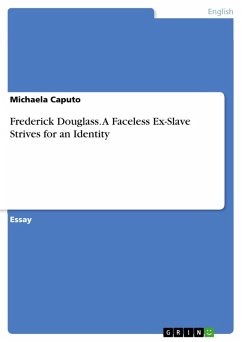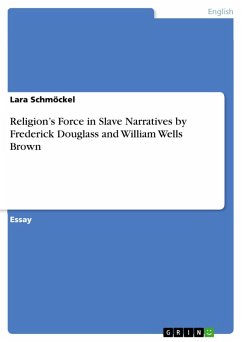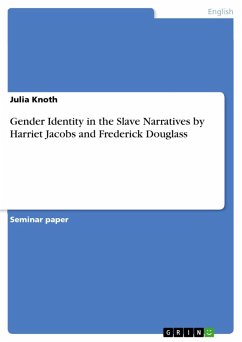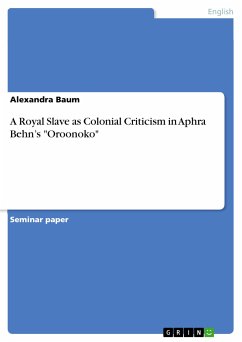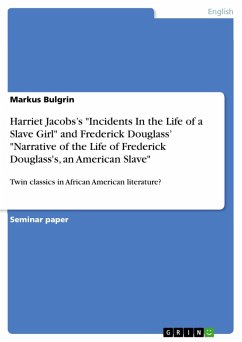Essay from the year 2012 in the subject English Language and Literature Studies - Literature, grade: 1,7, University of Tubingen, course: Übung: Written Communication II, language: English, abstract: This research paper refers to Frederick Douglass's "Narrative" to examine his personal development in terms of cultural memory and (cultural) identity. It will argue that Douglass, who had been deprived of his own culture by the dominant American system, was able to construct an African American identity for him and his fellow black Americans by resisting that system and by sharing his memories with the public. Belonging to a social group of whatever kind and sharing its respective cultural memory is necessary to build up an identity. But what if you do not belong anywhere? What if you are a stranger to and not welcome in the society you are born into and, at the same time, are prevented from practicing your original culture? This was exactly the situation of black slaves in America before the Civil War preceding the abolition of slavery. They had been brought involuntarily to America, where they were treated as objects, and as mere working machines. They did not have any rights, and were prevented from any personal contact with their family. Thus they could not develop a cultural memory as a precondition for a culture identity, which would have been necessary for a healthy personal development. An example for a person who has grown up as a slave in America is Frederick Douglass (1818-1881). He escaped from his masters at the age of 20 and led a life on the run until he became involved in the abolitionist cause. Being "the anti-slavery movement's most eloquent and electrifying speaker", he is remembered as one of its most important leaders. In his speeches, he mostly reported his own experience as a slave, showing "slavery's horrible cruelties" and thereby trying to convince people of the abolition. Finally, he wrote three autobiographies, the first of which is called "Narrative of the Life of Frederick Douglass".
Dieser Download kann aus rechtlichen Gründen nur mit Rechnungsadresse in A, B, BG, CY, CZ, D, DK, EW, E, FIN, F, GR, HR, H, IRL, I, LT, L, LR, M, NL, PL, P, R, S, SLO, SK ausgeliefert werden.

